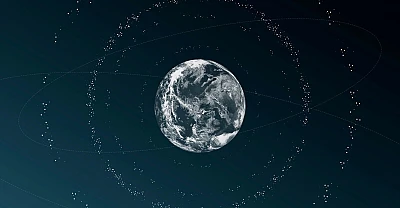For the space sector to continue for the years to come as the same bustling innovative sector enabling growth and transformational changes to life on earth, it is necessary to ensure that space activities are carried out in a sustainable manner.
To that effect, the UN COPUOS formulated the Guidelines for the Long-Term Sustainability of Outer Space (“LTSs”), voluntary guidelines with the aim to preserve the “ability to maintain the conduct of space activities indefinitely into the future in a manner that realizes the objectives of equitable access to the benefits of the exploration and use of outer space for peaceful purposes, in order to meet the needs of the present generations while preserving the outer space environment for future generations”. Among others, LTSs include (i) the adoption, revision and amendment, as necessary, of national regulatory frameworks for outer space activities, (ii) the supervision of national space activities, (iii) ensuring the equitable, rational and efficient use of the radio frequency spectrum and the various orbital regions used by satellites, (iv) developing space weather models and tools and collect established practices on the mitigation of space weather effects, (v) sharing experience related to the long-term sustainability of outer space activities and develop new procedures, as appropriate, for information exchange, and (vi) investigating and considering new measures to manage the space debris population in the long term.
The importance of space sustainability has also been reinforced by, among others, the leaders of the G7, which committed themselves to “the safe and sustainable use of space to support humanity’s ambitions now and in the future” and welcomed the LTSs, while calling “on others to join us in implementing these guidelines”. More importantly, they acknowledged “the importance of developing common standards, best practices and guidelines related to sustainable space operations alongside the need for a collaborative approach for space traffic management and co-ordination”.
The importance of addressing the risks arising from the growth of space activities is further stressed by WEF’s 2022 Global Risks Report, whilst the UNCUOPUS’s 2022 Report on the implementation of the LTSs in the European Space Agency again notes that States and international intergovernmental organizations are encouraged to voluntarily take measures to ensure that the LTS guidelines are implemented to the greatest extent feasible and practicable.
The EU Space Surveillance and Tracking (EU SST), on its turn, has joined the Net Zero Space Declaration, which promotes sustainable space activities and the protection of Earth’s orbital environment. Note, as well, the 2022 MoU signed between the European Union Agency for the Space Programme (EUSPA) and the UN Office for Outer Space Affairs (UNOOSA), which “builds on the common objectives regarding international cooperation in space activities and the use of space technology, data and services for achieving sustainable development”.
At the national level, we are also witnessing LTS being filtered down to national space legislations and regulations and licensing decisions, notably as technical standards, thus influencing the way in which space activities are carried out. This is understandable as the sustainability of space activities, as described in the LTS, deals also with the need for national regulatory frameworks to address new developments and new space activities so as to avoid legal gaps.
For instance, in the UK, regulatory changes have been pursued with a view to implement the LTS as reported to the UNOOSA, which saw, among others, the signature of an agreement with UNOOSA to promote sustainability. Additionally, the British government announced a series of measures in June 2022 to drive space sustainability, including a regulatory review to incentivise sustainable practices and the development of a new Space Sustainability Standard.
In Portugal, the existing legislation – which was enacted prior to the LTS – already includes, as licensing conditions, that the space activity provides appropriate safeguards against damage to outer space and guarantees the minimization of space debris, to the greatest possible extent, according to international principles and obligations (with the operator being required to submit security plans and a space debris mitigation plan in the context of the licensing procedure).
Finally, sustainability of space activities also needs to be considered in the context of space defence activities. To that effect, the US Space Force has confirmed on September 2021 that, when preparing response options to attacks in space, the sustainability of those options is factored into the decision. A step further, the UK is pushing for a UN resolution acknowledging the need for international norms and principles on reasonable behaviour in space.
In light of the foregoing, operators of space activities need to prepare their business models with LTS embedded therein or may risk breaching applicable law and/or losing access to financing (public and private). Aligning space activities with LTS may require the development of guidelines on LTS matters, as well as of reporting criteria and practices, in the operator’s structure. In addition, legal challenges will have also to be addressed, such as with relation to the sharing of information between stakeholders (notably when sharing commercially sensitive information), the reformulation of the operator’s corporate structure to address capacity building and safety requirements being imposed by LTS, and/or compliance with regulations and best practices on sustainability throughout the supply chain of operators.
